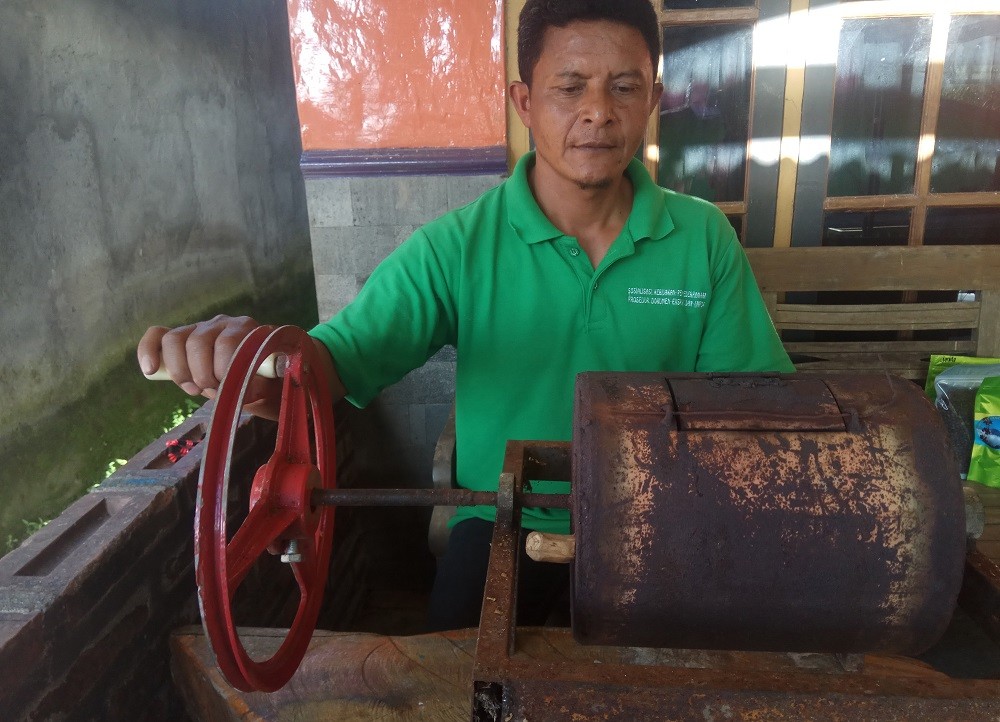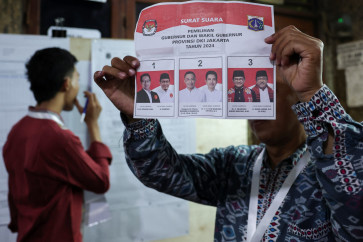Popular Reads
Top Results
Can't find what you're looking for?
View all search resultsPopular Reads
Top Results
Can't find what you're looking for?
View all search resultsA journey into the mountains for a cup of coffee
Villagers in Selo, Boyolali, Central Java, have returned to cultivating coffee, and business is thriving. The coffee plants, cultivated 1,600 meters above sea level and around three to six kilometers from the top of Mount Merapi, are considered unique.
Change text size
Gift Premium Articles
to Anyone
In the Selo subdistrict, Boyolali, Central Java, coffee is hardly a new thing.
Back in the colonial era, Lencoh, Stabelan and Tlogolele villages were filled with coffee plantations. However, after Indonesia achieved independence, the villagers shifted to growing vegetables as they were considered more profitable.
“Almost everyone planted coffee around their homes. They were not necessarily tended to, but left to grow on their own as yard fences. When they bore fruit, the beans were left on the ground,” said Suwondo, 46, a resident of Lencoh who is attempting to revamp Selo’s coffee industry.
Suwondo became interested in studying coffee after learning from Firmansyah, also known as Pepeng, 34, the owner of Klinik Kopi, a coffee shop in Yogyakarta, in 2004.
“Klinik Kopi sold coffee picked in Lencoh. At first, we couldn’t believe how good it tasted. That was the starting point for us, to seriously process and promote Lencoh coffee,” he said.
Read also: Temanggung tourist villages to provide coffee, hand-rolled cigarettes
The coffee plants, which are cultivated 1,600 meters above sea level and around three to six kilometers from the top of Mount Merapi, are considered unique. Selo coffee has medium consistency, with hints of lemon and nuts.
“Currently, our coffee harvest is still considered low. But we are certain that the business will thrive,” said Widodo, head of Tlogolele village.
Around 20 villagers have started to plant and cultivate Arabica coffee plants in their yards.
In 2015, their first harvest of the coffee cherries was priced at Rp 7,000 (around 50 cents) per kilogram. It was surprising, as previously the cherries were bought at Rp 1,000 per kilogram.
“Currently, the green beans are sold for Rp 75,000, while roasted beans sell for Rp 200,000 per kilogram. Selo coffee is also sold in coffee shops in Yogyakarta and Surakarta, while every homestay and café in Selo serves Selo coffee,” said Heri Setiawan, owner of Kopi Selo coffee shop on Jl. Raya Selo-Borobudur.
Heri is making use of a 7,000-square meter plot of land that belongs to his parents to grow coffee.
“Coffee plants from my own yard wouldn’t meet the demand. Especially nowadays, as people buy coffee as souvenirs,” he said.
The residents of Selo have also included coffee as part of tourism packages, such as a coffee plantation tour together with a mountain tour. During harvest time, tourists can pick the cherries and learn about the coffee making process, such as sorting and roasting.
Read also: Crazy about Indonesian coffee? Here are the basics of java
“Enjoying coffee while gazing at Merapi is something else. Too bad it’s not harvest time. So we only visited the plantation and learned to roast coffee,” said Widawati, a tourist from Semarang.
For tourists visiting New Selo, coffee has become a trademark souvenir. While enjoying the views of Merapi and Merbabu mountains as well as vegetable farms, tourists can also partake in nature-based activities, such as flying fox rides.
“Tourism in Selo is starting to pick up. On weekends, homestays in tourism villages are always fully booked. Tourists also favor coffee over beer,” said Heri. (wng)







